I’m cleaning another pile of fresh snow off the cover on my drift boat. It’s a chore I do almost daily this winter, but I’m not complaining. All this white translates into more water this summer.
My home waters are Idaho’s South Fork of the Snake River, which is buried in snow, and the Henry’s Fork of the Snake River, which is farther north and buried in even more snow.
Both are in the Caribou-Targhee National Forest and Bureau of Land Management’s Idaho Falls District. I see the feds. working around both stretches, but I don’t see local law watching my water. My guess is they’re in town tied up with whatever it is I’m getting away from.
“Sheriff’s serve citizens and protection of public lands may not be their priority,” says Pat O’Carroll, Federal Law Enforcement Officers Association executive director. “If there’s a robbery in town and a wildfire is started at the same time, they’re probably going to go to the robbery.”
Wildfire may rob me of my outdoor adventure, but it still doesn’t hold the sheriff’s priority like a robbery. That’s the reality of local law. But while the bank heist goes down, I know someone else is watching my water for illegal activity. That could change this year.
Enter H.R. 622. The Local Enforcement for Local Lands Act introduced by Rep. Jason Chaffetz (R-UT). Chaffetz also introduced H.R. 621, Disposal of Excess Federal Lands Act of 2017. He dumped that bill in early February thanks to pressure from anglers, hunters and other sportsmen and women, but not H.R. 622.
“It’s time to get rid of the BLM and U.S. Forest Service police,” Chaffetz says on his website. “If there is a problem, your local sheriff is the first and best line of defense.”
If that’s the case, why is the sheriff at the robbery? Priorities. Small divisions of local law are already strapped. Handing them law enforcement of federal land seems overwhelming. Especially in a state with 61 percent of its land designated public.
“This idea of trying to eliminate federal law enforcement on public lands and hand it over to local law enforcement is like asking your dentist to do gall bladder surgery,” says Land Tawney, Backcountry Hunters and Anglers president and CEO. “They have different skills, plus you’re putting more stress on someone that is already overworked.”
And local duty stops at jurisdictional borders, unlike wildfires. Federal agents work cases across multiple counties, states and countries. The sheriff will have another robber to chase before the wildfire is out.
“I’m in no way belittling local law enforcement,” says Jay Webster, retired U.S. Forest Service law enforcement and investigations patrol captain. “However, the expertise in what we do as opposed to what they do is different. We respond to archeological crimes and catastrophic wildfires. No way would a sheriff’s office, or any other state law, be able to respond with resources to those kind of incidents.”
The Intermountain Region of the U.S. Forest Service is the largest region in the nation. It manages 34 million acres with 43 law enforcement officers. Now zoom in on southeastern Idaho within that region. Caribou-Targhee National Forest covers 3.2 million acres. BLM’s Idaho Falls District has 3.7 million acres. There are three federal forest service law enforcement officers in the Caribou-Targhee. Three for BLM. More than a million acres a piece for each. The odds are boggling, but they are better than 0.
“I don’t believe the bill Chaffetz supports will be successful,” says Lanny Wagner, retired Bureau of Land Management Colorado chief law enforcement ranger. “Those individuals with such advanced skills and passion out of work seems really drastic.”
Just the idea of such a scenario has me wondering what I’ll see this summer. Trash is an ongoing problem. Overharvest happens. Who will be watching my water?
“As sportsmen, we look at this bill as anti-fishing, anti-hunting and anti-American,” says Randy Newberg, sportsman and host of Fresh Tracks. “It’s one more way to diminish or eliminate the public lands concept.”
Under H.R. 622, funds would transfer from federal to local, but bodies won’t follow those funds. Federal employees aren’t likely to look for work at the county sheriff’s office.
“They’re there to enforce laws on public lands. If they were to move over, there’s no guarantee they’re going to be able to pursue the cases they currently pursue,” Wagner says. “Based on the career aspirations I had, I wouldn’t even consider it.”
Yet, H.R. 622 is still being considered. I don’t know about you, but I like seeing the law when I fish. And I like knowing someone is after the fire starter while the sheriff takes care of that robbery in town.







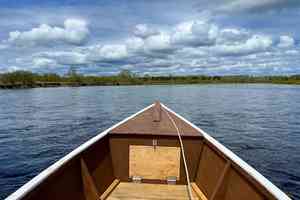


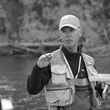

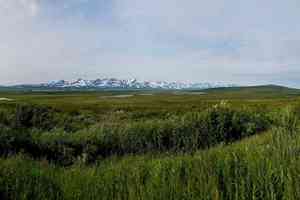

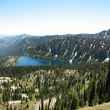












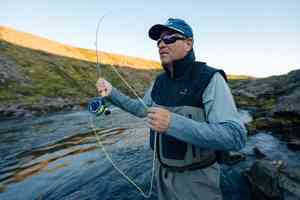




Comments
Alan replied on Permalink
a short article on a very big topic - I'd like to buy in and I want to accept the premise, but I can't quite get there because I find the foundational arguments need more development - sorry
FSMcNab replied on Permalink
Thanks for reporting on HR 622. I was unaware Chaffetz introduced a "companion" piece of legislation to HR 621. The bills seem two sides to one coin. These attempts to take our shared natural resources for the enrichment of the very few- seem to be part of a new wave of American style kleptocracy. Our natural resources are worth sharing and protecting. Without them many of us will loose our way of life. Don't let the politicians and their benefactors steal our heritage from us and our children. Write your congress person, or show up at their next public meeting and voice your support for our public lands.
Pages